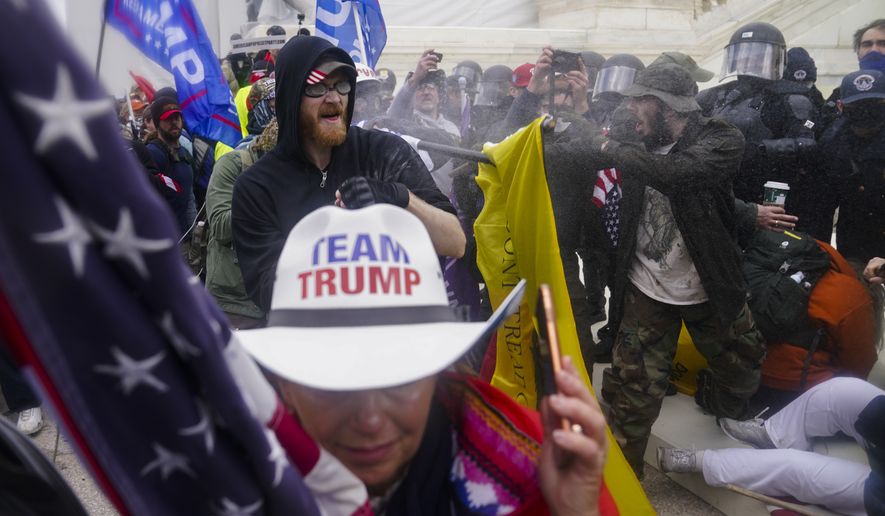One year after a mob, egged on by then-President Trump, stormed the U.S. Capitol on the false belief that the 2020 election had been stolen from their leader, Americans remain divided about what actually happened that day and who was responsible.
While federal authorities have made more than 700 arrests, they estimate as many as 2,500 people could face charges, including 1,000 for acts of assault. As this massive criminal investigation proceeds, the House Select Committee continues its probe into the origins of the riot, now seeking information from prominent Fox News personalities who were in touch with Mr. Trump and his close associates in the days before and during the violence.
The aftermath of the wild attack on the seat of government seeded new, legal attempts to subvert American democracy, according to voting rights activists, historians and political scientists.
In 15 states, Republicans who believe Mr. Trump won the 2020 election are running for secretary of state, the position that oversees elections and controls voting. Republicans loyal to the former president have introduced bills aimed at restricting voting in more than 30 states.
In this episode of History As It Happens, Paul Quigley, the director of Virginia Tech’s Center for Civil War Studies discusses the unsettling parallels between the current moment and the first crackup of American democracy, the secessionists’ rebellion of 1860.
We are not hurtling toward another Civil War, Mr. Quigley said, but Americans are caught in a cycle of polarization that makes bridging the partisan chasm nearly impossible. The House Jan. 6 committee must finish its work and broadcast its findings to the world, however.
“This is a very dangerous time in American politics. The aftermath, the reactions to Jan. 6, the way they have evolved over the past 12 months have reinforced the sense of danger. The lesson that is beginning to come into view is that if you are brazen enough to keep saying something, it will seem true,” Mr. Quigley said.
“Manipulating elections, telling lies about elections, is an extremely effective way in a democratic system to spread uncertainty and chaos.”
To listen to the full interview with Mr. Quigley, download this episode of History As It Happens.




